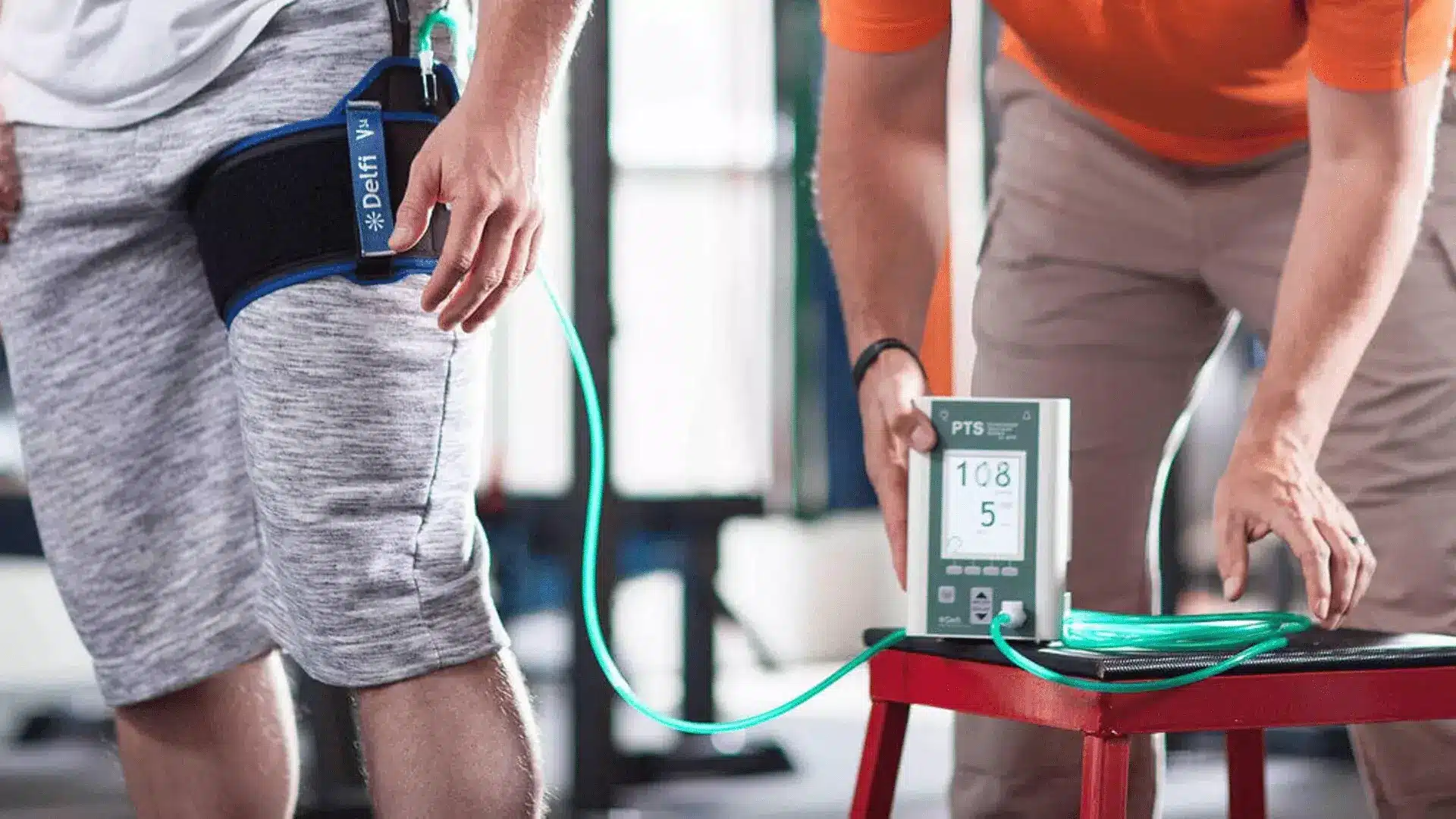While exercise is important, there are other treatments such as personalized blood flow restriction therapy. These can give you better results with the same amount of effort (more results from your hard work). After an injury or surgery, it’s normal for your muscles not to look the same. After you have been completely treated, your body should appear the same on both sides.
The healing process can be accelerated by personalized blood flow restriction therapy
Exercises alone can make many people feel depressed after an injury or surgery. Sometimes they feel that something is missing or that they aren’t quite “back to normal.” They procrastinate, and eventually believe they will have to live with their situation for the rest of life. They are still unhappy with the results years later and don’t feel back to their true selves.
Personalized blood flow restriction can help you recover faster after an injury, surgery, or other medical procedure. We see people every day who are able to live the life that they desire after undergoing personalized blood flow restriction therapy. Personalized blood flow restriction therapy is a natural way to live the life you want.
How does Personalized Blood Flow Restriction Therapy in Omaha, NE work?
The device used in personalized blood flow restriction therapy is similar to a blood pressure monitor to reduce blood flow to specific areas of the body. This can be done while you are doing exercises. This trick tricks your muscles into believing they are performing hard exercise. It doesn’t put too much strain on your surgical or injured area. This means that you can exercise at 85-90% effort, but only 20-35% of your work.
Multiple studies have shown that the System is effective in restoring mobility and speeding up recovery for patients suffering from cumulative trauma disorders or other soft tissue dysfunctions. These distinct benefits are evident in the vast majority of cases.
Our rehabilitation refers to the temporary and intermittent occlusion or blockage of blood flow through veins while exercising. This technique allows you to exercise lighter while still achieving hypertrophy (growth) or a strength response. To achieve hypertrophy and strength in your muscles, you’d need to lift heavy loads.
Application
It is important to decrease blood flow enough to make positive changes. The amount of pressure that is used will vary from person to person. When determining the pressure you need, it is important to consider the size and density of your limbs, blood pressure, location of the tourniquet and the width of the tourniquet. To account for these variables, your healthcare provider will use a specialized tourniquet system that includes a monitor. Your healthcare provider will also discuss with you any contraindications that may be associated with this treatment to help you determine if your case is a good candidate.
Training
After you have determined your personal pressure, you can begin the exercises that are best suited to your rehabilitation plan. Your muscles will feel more tired even though you are lifting less weight. This is due to the buildup lactate in your muscles, which is the desired response to this training. To maximize your response, it is crucial that you do all the sets and repetitions recommended by your healthcare provider. Your heart rate may rise and you might feel a similar sensation to a heavy workout. This is normal and to be expected.
Benefits of Blood Flow Restriction Therapy in Omaha, NE
Many positive effects can be seen after you’ve completed your workout and have enough lactate. These include an increase of growth hormone and other metabolic factors that can help you grow your muscles. You will also see an increase in muscle protein production, which will improve your muscles’ growth. To maximize these benefits, you should talk to your healthcare provider about the best nutrition guidelines.
Side Effects
Rarely are there any side effects. Most common side effects include residual swelling, fatigued muscles and mild soreness. These symptoms are usually temporary and disappear within 24 hours.
Talk to your healthcare provider if you experience prolonged swelling, fatigue, or soreness.




